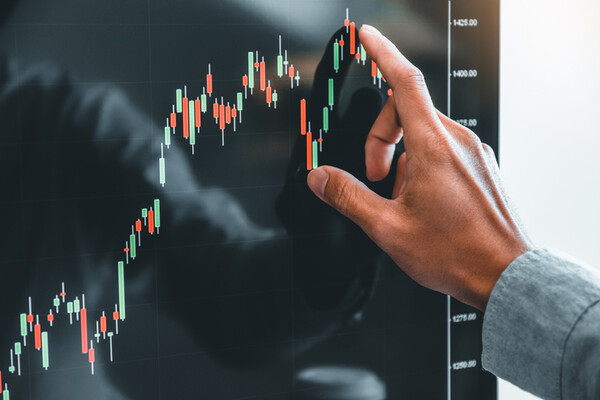Korean AI-backed medical imaging companies, which previously faced sluggish stock prices since their listing on the tech-heavy Kosdaq market, are witnessing signs of revitalization this year as share prices sharply rise.

Continuing their upward trend, the stock prices of leading domestic medical AI companies, including Lunit, VUNO, and JLK, have surged by two or three-fold.
VUNO has seen one of the highest stock price gains in the medical AI industry this year.
VUNO's stock price started the year (Jan. 2) at 6,230 won ($4.85), but as of 10:20 a.m. on Tuesday, it was 30,200 won, a 376.3 percent jump.
During the same period, Lunit rose 357.5 percent from 29,800 won to 132,000 won, and JLK increased 265.9 percent from 3,150 won to 12,020 won.
Lunit also became the first company of its kind to surpass the 1 trillion won market capitalization mark on May 24, solidifying its position as an industry leader.
All three companies listed on the Kosdaq on the strength of their technology, but have struggled with conservative market regulations and slow business performance.
However, they have recently realized business results such as expanding product supply and entering the non-reimbursement market, and have been receiving public attention from the rising expectations for the development of the AI industry such as ChatGPT.
Stock market analysts also analyzed that a big portion of the growing interest in the three companies is likely due to the growth of the companies earnings.
In the first quarter of this year, VUNO generated 1.7 billion won in revenue, more than quadrupling their earnings from last year.
During the same period, Lunit's revenue also jumped nearly four times to 10.9 billion won, and JLK's revenue grew more than 10 times to 900 million won.
An industry watcher predicted that the industry will become more vitalized in the future.
"In the big picture, the use of medical AI is a global trend, and global pharmaceutical companies and medical organizations are paying close attention to the sector," an industry official told Korea Biomedical Review. "At the moment, they are just using it in the test phase, but if the base becomes more widespread, I expect that the AI medical imaging companies will be able to improve profitability considerably."
The official stressed that the growth of the domestic medical AI imaging sector was possible thanks to strong support from the government.
"The government is providing a lot of policy support to the digital sector, and I know that additional support measures will be announced soon," an industry official told Korea Biomedical Review. "In particular, Deputy Prime Minister and Minister of Economy and Finance Choo Kyung-ho recently announced plans to improve regulations and provide tax benefits to support the bio-industry by this month."
However, the official also cited some challenges ahead.
"The most notable challenge is that medical AI is still an unfamiliar term to the public, so it is expanding at a slow pace," he said. "For example, medical AI imaging is not covered by medical insurance, so we believe there is a need for eased regulations."
It is also important for companies to focus on research and produce results that can lead to such reimbursements, he added.
Related articles
- Lunit to supply AI software to Korean military bases overseas
- Lunit sales in Q1 skyrocket over threefold compared to 2022
- VUNO shares surge after FDA innovative medical device designation
- VUNO to co-develop medical content with Weknew
- A HK investor sold its Lunit shares. What happened?
- AI-powered cardiac arrest prediction system saved this patient's life.
- Korean AI medical imaging firms placed on KRX’s investor cautionary watchlist
- Generative AI's infiltration of healthcare: insights from industry experts

